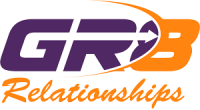If you want to help someone forgive, use the "Can you - will you - when" technique. It establishes their ability to forgive, then whether they will forgive. It is so easy to use and creates a structure that helps someone determine how they are thinking.
The technique is helpful with almost anything that you know a person has the ability to do. So, everyone has the ability to forgive, but on the other hand, not everyone has the ability to be a world-class tennis player.

"If your brother sins against you...forgive him. And if he sins against you seven times in a day...you shall forgive him" - Luke 17:3-4
CAN YOU?
One of my favorite topics in the Bible is forgiveness. It is also one of the essential tools for all relationships if you want your relationships to be GR8!
Suppose you had been talking with someone about forgiveness - you have gone through the seven steps and now it is time for them to choose.
You would start with the first question - CAN you forgive?
Some people will say "no" to that question, but that answer is actually 100% incorrect - why? Ask them to think about the definition of "can." The question only asks if they have the ability to forgive. Some people answer the question thinking a decision is required. No, this question does not ask for a decision. It only establishes whether they acknowledge that they have the ability to forgive.
If they answer "no," they do not accept reality. At some level, everyone with reasonable mental capacity has the ability to forgive. So, there is only one answer – Yes. We all have the ability to forgive!
WILL YOU?
Why was the "CAN you" question so important? Because it sets up the "WILL you forgive?" question. Think about it. If you ask, "Do you have the ability to forgive?" to which a person answers, "Yes," you have established they "can" do it.
Now you ask, "Will you forgive?" This is a more difficult question; it asks for a decision - for a commitment, to resolve or conclude for or against forgiveness. You ask them to choose bleeding or healing.
The beauty of this sequence shows up if they answer "No" to this second question. Now you simply state, "Okay, I just want to make sure you are clear about this. You clearly understand that you have the ABILITY to forgive. Still, you are choosing not to use that ability to forgive and remain with an attitude that leads to bitterness, resentment, and grudges. Is that correct?"
Notice the power the combination of the CAN and WILL questions produces, especially when you follow up with a statement like the one above.
WHEN?
Finally, if they said "yes," they will forgive, then you ask the last question. "WHEN will you start?" Sometime later next week? Tomorrow? When they feel like it?
Badgering or shaming them to have a sense of urgency isn't appropriate. This decision is accountable to God, not you, like all their decisions. Encouraging them to do it as soon as possible is appropriate and for their good. In fact, I remind people that unforgiveness hurts them the most, not the person that has harmed them! There are severe consequences if unforgiveness remains a part of a person's life. Additionally, it is entirely appropriate to encourage them not to let the sun set today without forgiving!
Try the "Can you, Will you, When" technique and contact me to let me know how it went. It can help you make changes or be an excellent tool to assist others in making changes.
We all have the ability to forgive - we choose to disobey God and not do it!
PURSUING THEIR BEST - Freedom in Relationships
Videos you may like
Podcasts you may like
